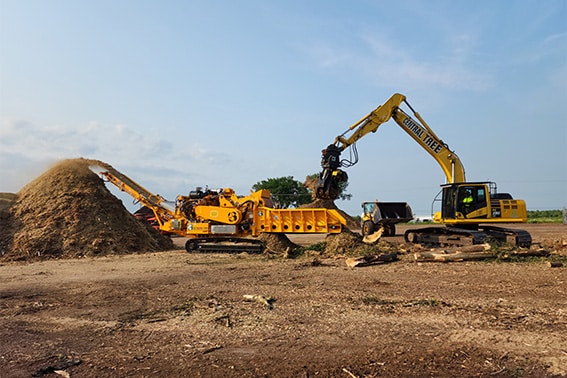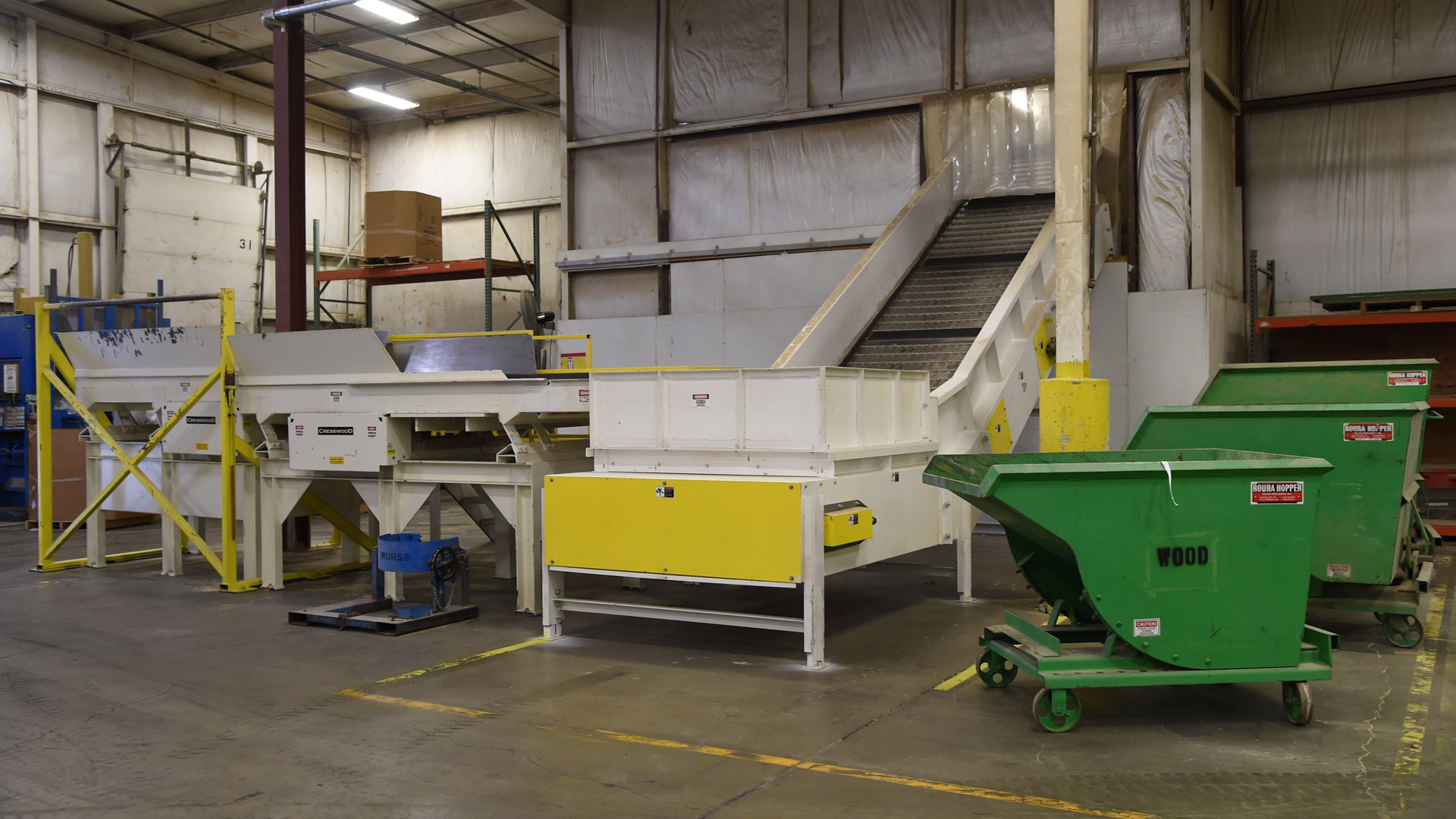Update Your Sawmill Toolbox with State-of-the-Art Wood Grinders - Unrivaled Performance
Update Your Sawmill Toolbox with State-of-the-Art Wood Grinders - Unrivaled Performance
Blog Article
Open the Potential of Reusing With Advanced Timber Grinders: Streamline Workflow and Minimize Waste
One such service that holds great guarantee is the advanced wood mill, a technology that has the prospective to unlock the real capabilities of reusing. By enhancing operations and minimizing waste, these grinders provide a novel technique to dealing with the difficulties of wood waste processing. In this discussion, we will certainly discover the answers to these inquiries and shed light on the untapped possibility of advanced timber mills in changing the reusing industry.
Effective Wood Waste Handling
Effective wood waste processing is critical for streamlining reusing procedures and taking full advantage of the usage of this beneficial resource. Timber waste, such as hardwood, lumber, and pallets, is a considerable byproduct of various industries, consisting of building and construction, furnishings production, and demolition. To successfully reuse this waste and manage, advanced wood mills have arised as a crucial service.
Advanced timber mills are made to successfully process wood waste right into recyclable products, such as wood chips or mulch, which can be utilized for different objectives. These mills use effective cutting devices and progressed shredding technologies to damage down wood waste into smaller, extra workable items. By lowering the dimension of the waste, the grinders promote much easier transportation and storage.
In enhancement to size decrease, advanced wood grinders additionally play an important duty in dividing pollutants, such as nails and screws, from the wood waste. This makes sure that the processed product is totally free and tidy from impurities, making it suitable for a wide variety of applications.
Reliable wood waste handling not just helps simplify reusing procedures but also minimizes waste. By handling and reusing wood waste, services can reduce their dependence on virgin resources, save energy, and decrease the ecological impact related to conventional waste disposal methods.
Sustainability in Waste Administration
Promoting sustainable practices and environmental obligation, waste administration in the context of wood handling involves carrying out eco-friendly and reliable methods. In today's globe, where ecological issues go to the center, it is essential for industries to take on sustainable waste monitoring techniques. With the boosting demand for timber products and the succeeding rise in timber waste, it has come to be vital to discover cutting-edge remedies that reduce the effect on the atmosphere.
Sustainability in waste monitoring entails numerous vital aspects. Firstly, it is essential to minimize the quantity of waste created in the timber processing sector. By executing effective wood grinding strategies, such as making use of sophisticated timber mills, the sector can considerably reduce the volume of waste produced. These mills can refining huge amounts of timber waste right into smaller sized, much more workable pieces, which can then be repurposed or reused.
Secondly, lasting waste management concentrates on reusing and reusing materials whenever feasible. Timber waste can be changed into valuable resources such as biomass fuel or garden compost. By repurposing wood waste, the market can reduce its reliance on virgin products and decrease the need for garbage dump area.
Last but not least, lasting waste management includes minimizing the environmental effect of garbage disposal. Wood waste that can not be recycled or recycled should be thrown away in an ecologically accountable manner. This might include appropriate sorting and segregation of waste, in addition to utilizing technologies that convert waste into energy with procedures like anaerobic digestion or incineration with power recuperation.
Improved Recycling Operations
To enhance wood waste administration and maximize reusing efforts, the implementation of sophisticated timber grinders is crucial for improving recycling operations (wood grinders). These devices provide a series of benefits that can considerably improve the efficiency and effectiveness of recycling procedures
One of the key advantages of advanced timber mills is their ability to refine a wide range of wood waste products. From crates and pallets to tree branches and stumps, these grinders can effectively damage down timber waste right into smaller sized, more workable items. This not only promotes easier transportation and storage space yet also makes it possible for the recycling of a greater volume of timber waste.

Moreover, advanced timber mills are geared up with functions that enhance safety and minimize downtime. These devices are made to operate effectively and accurately, reducing the click this link need for repair and maintenance. This permits recycling procedures to run efficiently and constantly, ultimately boosting efficiency and reducing costs.
Maximizing Resource Utilization
With the capacity to efficiently refine a vast array of wood waste products, progressed wood grinders play a crucial role in taking full advantage of resource utilization within reusing operations. These makers are created to effectively convert timber waste right into important timber chips or compost, which can then be used in numerous sectors such as landscape design, biomass power production, and animal bed linens.
By making use of sophisticated timber grinders, reusing procedures can dramatically lower the quantity of timber waste that winds up in garbage dumps, aiding to preserve important landfill room and lessen ecological impact. The processed timber waste can be repurposed and used as a renewable energy, contributing to a much more lasting and circular economic situation.
In addition, progressed timber grinders allow reusing operations to extract the maximum worth from timber waste products. These makers have the capacity to produce premium and consistent timber chips or compost, which can be offered as useful products in the market. This not just produces profits for reusing procedures but also creates opportunities for the advancement of new markets and partnerships.
Along with taking full advantage of resource use, advanced wood grinders also add to the overall efficiency of recycling procedures. These devices are created to manage large quantities of wood waste promptly and properly, reducing handling time and labor expenses. They also have safety and security features and progressed modern technologies that make sure dependable and smooth procedure, reducing downtime and optimizing productivity.
Minimizing Ecological Footprint

One of the essential advantages of using sophisticated timber grinders is the manufacturing of beneficial items from wood waste. These grinders have the capability to transform timber waste into wood chips, mulch, or biomass fuel, which can be utilized in numerous industries such as landscaping, power, or building manufacturing. By transforming waste into beneficial products, these grinders add to a much more lasting and circular economy.
Furthermore, progressed timber mills are geared up over here with sophisticated technologies that find more information improve their effectiveness and reduce power consumption. They are developed to handle large quantities of timber waste in a short amount of time, allowing recycling procedures to simplify their processes and boost productivity. This not only reduces the environmental effect of reusing procedures but additionally improves the total performance of wood waste monitoring.
Verdict
In conclusion, advanced wood grinders provide an encouraging remedy to open the possibility of recycling by minimizing and simplifying procedures waste. These mills enable effective wood waste processing, enhance reusing procedures, take full advantage of resource use, and minimize the environmental impact. wood grinders. By adopting these innovations, companies can add to an extra lasting waste management system, ensuring the effective usage of sources and decreasing ecological influence

Report this page